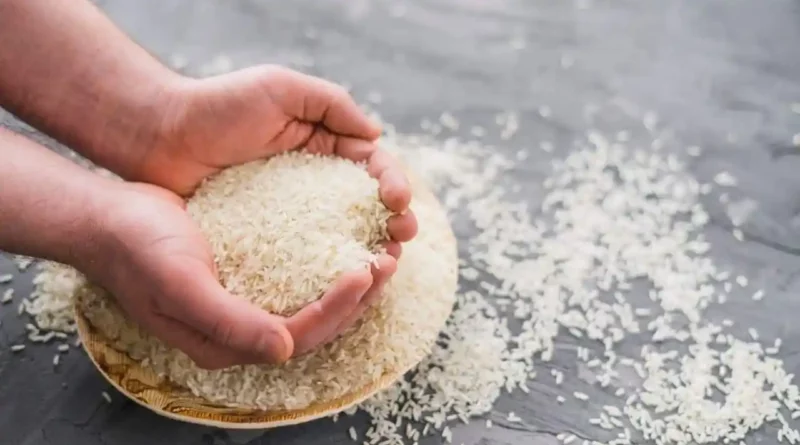States barred from buying FCI rice under open market, supply for ethanol rises
By Harikrishan Sharma
The monthly supply of rice for making ethanol reached a record high of 2.77 lakh metric tonnes in June 2023, taking the overall quantity of rice supplied to distilleries for this purpose to 24 lakh tonnes in less than three years, according to latest data available with the Food Corporation of India (FCI).
The data shows 2,77,419.98 metric tonnes (MT) was supplied in June 2023, which is 216% more than 87,778.81 MT in the same month of 2022.
The monthly quantity of rice supplied for ethanol was 2.95 lakh MT in May 2023.
In fact, the monthly figure of rice supplied for making ethanol is the highest since Ethanol Supply Year 2020-21 when the government started supplying surplus stock of rice from the central pool by FCI for conversion into ethanol.
Sources said the figure is expected to rise further as the government intends to provide 32 lakh MT rice for ethanol during Ethanol Supply Year 2022-23, of which 13 lakh MT has been supplied until June. The remaining 19 lakh MT has to be supplied by November this year.
In March 2020, the Centre had decided to supply FCI rice to distilleries for production of ethanol at a rate of Rs 2,250 per quintal under the Open Market Sale Scheme (Domestic). The rate was reduced to Rs 2,000 per quintal in December 2020, and it has continued supplying at the same rate since.
The price of rice supplied for ethanol is much lower compared to the economic cost incurred by FCI on procurement and storage operations: these were Rs 3,939.26 per quintal in 2020-21; Rs 3,562.49 in 2021-22; Rs 3,858.19 in 2022-23 (revised estimates); and Rs 3,918.05 per quintal in 2023-24 (BE).
The FCI has supplied over 24 lakh MT rice to distilleries for making ethanol since December 2020.
As per a written reply by Minister of State for Consumer Affairs, Food and Public Distribution Sadhvi Niranjan Jyoti to Lok Sabha on Wednesday, 49,000 MT rice was supplied for ethanol in Ethanol Supply Year 2020-21; 10.68 lakh MT in supply year 2021-22; and 13.05 lakh tonnes in 2022-23 (up to July 10).
Of 24 lakh MT supplied to distilleries for making ethanol so far, the maximum — 1.67 lakh MT — has been bought by Chandigarh Distillers & Bottlers Ltd, is followed by Bihar Distilleries and Bottlers Pvt Ltd (1.57 lakh MT), and BCL Industries Ltd (0.13 lakh MT), according to the minister’s written reply in response to a question by Telugu Desam Party MP Jayadev Galla.
According to MoS Jyoti, FCI has generated revenue of Rs 4,844 crore so far by selling surplus rice for production of ethanol since December 2020.
The spike in monthly supply of rice for ethanol comes at a time when several states, Karnataka being the latest, have requested the Centre to supply them rice under the Open Market Sale Scheme-Domestic (OMSS). The Centre has discontinued sale of rice and wheat to states under OMSS with effect from June 13, 2023.
“Considering expected deficiency in rainfall caused by El Nino as speculated by India Meteorological Department due to which Kharif crop production in the country may be affected…. In order to control inflationary trends and to maintain adequate stock levels under central pool for distribution under National Food Security Act and other welfare schemes for the benefit [of people], sale of wheat and rice under Open Market Sale Scheme (Domestic) for state governments, including Tamil Nadu, has been discontinued with effect from 13.06.2023,” Jyoti said in the reply.
The reply also stated, “State governments of Karnataka, West Bengal and Tamil Nadu have requested for wheat and rice under OMSS(D) Policy which was not acceded to due to discontinuation of sale of wheat and rice to states under OMSS(D) 2023.”
On July 20, the Centre banned export of non-basmati white rice with “with immediate effect” by amending the export policy of the cereal variety from ‘Free’ to ‘Prohibited’.
Explaining reasons behind the move, the ministry had said in a statement: “In order to ensure adequate availability of non-basmati white rice in the Indian market and to allay rise in prices in domestic market, Government of India has amended the Export Policy of above variety from ‘Free with export duty of 20%’ to ‘Prohibited’ with immediate effect’.”
The ministry also said that domestic retail prices of rice have “increased by 11.5% over a year and 3% over the past month”.
This article has been republished from Indian Express

